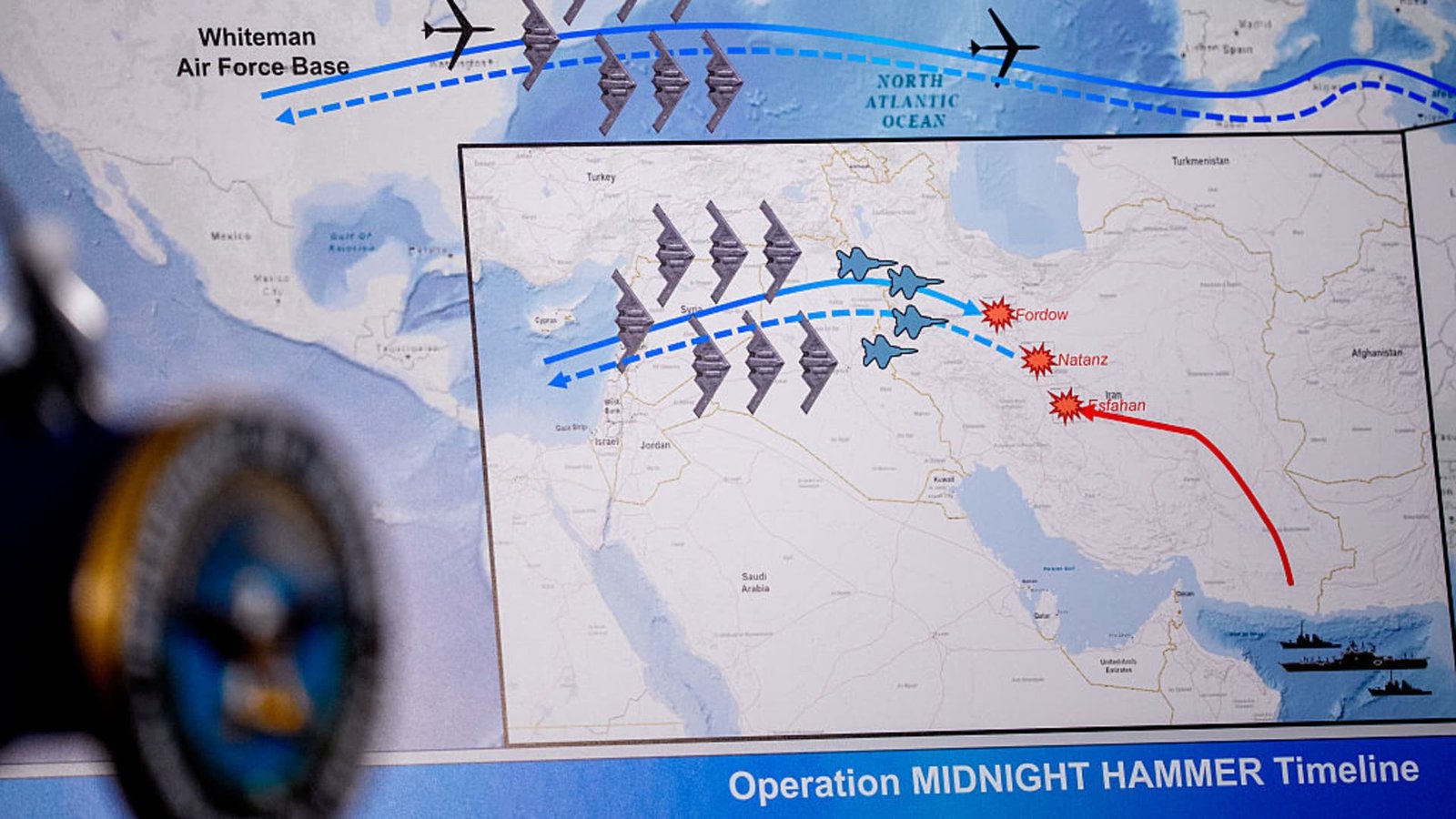ARLINGTON, VIRGINIA – JUNE 22: An operational timeline of a strike on Iran is displayed during a news conference with Chairman of the Joint Chiefs of Staff Air Force Gen. Dan Caine and U.S. Defense Secretary Pete Hegseth at the Pentagon on June 22, 2025 in Arlington, Virginia. U.S. President Donald Trump gave an address to the nation last night after three Iranian nuclear facilities were struck by the U.S. military. (Photo by Andrew Harnik/Getty Images)
Andrew Harnik | Getty Images News | Getty Images
The past 24 hours have been pivotal in the Israel-Iran conflict, with the U.S. entering the war — a move that has left investors and world leaders on edge.
On Saturday night, American B-2 Spirit stealth bombers and submarines struck three of Iran’s most critical nuclear sites: Fordo, Natanz, and Isfahan.
The strikes represented the first direct action that the U.S. had taken against Iran since the country was hit by Israeli attacks earlier in June.
Israel and Iran had been trading strikes since Israel preemptively attacked it on June 13, killing key Iranian military figures and nuclear scientists.
Since then, the world has seen reactions from around the globe over the strikes, including from Iran itself, which has called the strikes “outrageous” and vowed “everlasting consequences”. Iran’s parliament has also voted to close the critical Strait of Hormuz, endangering energy supplies.
Here’s a roundup of the events since the U.S. attacks happened, and what could happen next.
the U.S. had conducted a “very successful attack” on the three nuclear sites, and said “NOW IS THE TIME FOR PEACE!”.
About an hour later, a U.S. official told Reuters that B-2 Spirits were involved in the bombings. These bombers are believed to be the only planes which have the capability to deliver the weapons powerful enough to penetrate the underground facility at Fordo.
The International Atomic Energy Agency later confirmed that all three sites were hit.
Following the strikes, world leaders reactions poured in, among which was Israeli Prime Minister Netanyahu who thanked Trump for the strikes, calling it a “bold decision.”
The IAEA released two updates after the strike, saying that Director General Rafael Grossi would call an emergency meeting of the IAEA Board of Governors to discuss the decision.
The agency said it was also informed by Iranian regulatory authorities that there has been no increase in off-site radiation levels after the attacks.
The UN Security Council also met on Sunday to discuss the attack, as Russia, China and Pakistan proposed that the UNSC adopt a resolution calling for an immediate and unconditional ceasefire in the Middle East.
China strongly condemned the U.S. attack on Iran and on nuclear facilities supervised by the IAEA, China’s U.N. Ambassador Fu Cong said at a UNSC meeting on Sunday.
While U.S. officials, including U.S. Vice President JD Vance and Defense Secretary Pete Hegseth said that the attacks were not meant to enact regime change in the Islamic Republic, Trump himself raised the possibility of that happening.
The U.S. president posted on Truth Social that “It’s not politically correct to use the term, “Regime Change,” but if the current Iranian Regime is unable to MAKE IRAN GREAT AGAIN, why wouldn’t there be a Regime change??? MIGA!!!”




